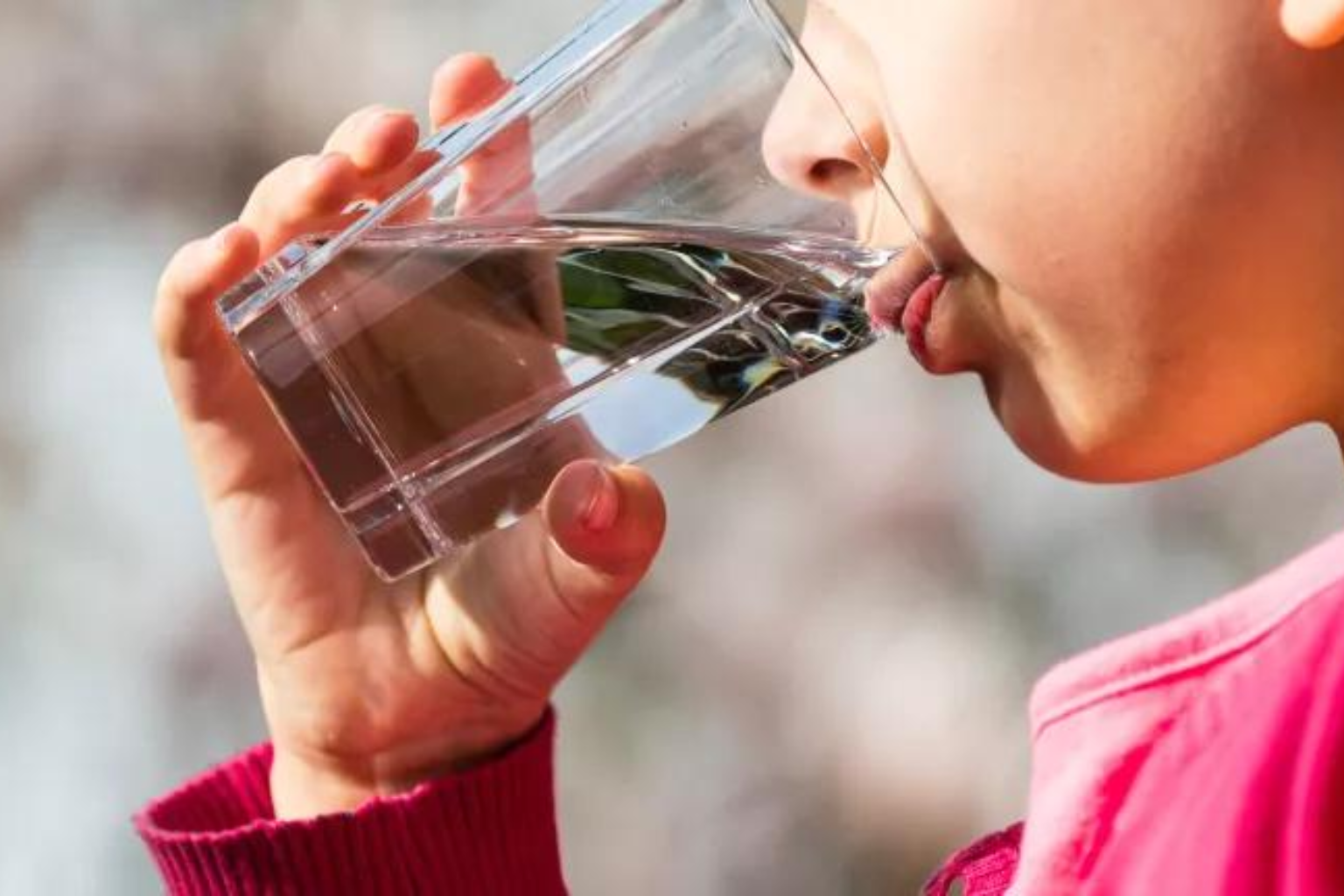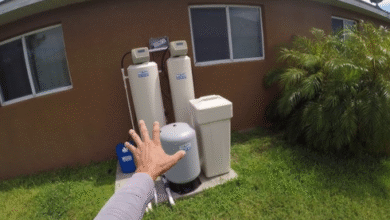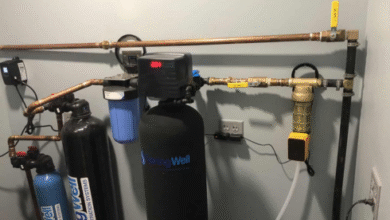The Importance of Water Filters: Ensuring Clean Drinking Water for a Healthier Life

When was the last time you thought about the quality of the water you drink? For most of us, water is something we take for granted—turn on the tap, and it’s there. We rarely pause to consider what’s actually in it. But the reality is, not all water is created equal. Whether you’re concerned about the taste, smell, or potential contaminants, water filters can make a significant difference in the quality of your water. In this article, we’ll explore why filtered water is essential, how water filters work, and how you can improve your water quality to ensure clean drinking water at home.
Why Clean Drinking Water Matters
We often underestimate the importance of clean water—after all, it’s a fundamental part of our daily lives. But think about it: you drink water, cook with it, clean with it, and even bathe in it. Water is essential to nearly everything we do. So, if the water we’re using is contaminated or filled with impurities, it can affect not just our health but also the quality of life in our homes.
In many areas, tap water is treated and regulated by local authorities. But even with all the safeguards in place, contaminants like chlorine, lead, pesticides, and bacteria can still find their way into the water supply. These impurities can cause everything from digestive issues to skin irritation and long-term health risks.
That’s where clean drinking water becomes crucial. While public water systems do their best to provide safe water, there’s a lot to be said for having a filter that ensures your water is as pure and fresh as possible. Filtered water provides an added layer of protection, offering a cleaner, better-tasting, and healthier alternative to what comes out of the tap.
The Role of Water Filters
So, how exactly do water filters work? Water filters are designed to remove harmful substances from your water, including dirt, chlorine, heavy metals, and other chemicals that affect both the taste and safety of your drinking water. They work through various filtration methods, such as carbon filtration, reverse osmosis, and UV purification, depending on the type of contaminants being targeted.
- Carbon Filters: These are the most common type of filters. They work by using activated carbon, which has a high surface area that attracts and absorbs impurities like chlorine, volatile organic compounds (VOCs), and other chemicals that affect the taste and smell of your water. If you’ve ever used a pitcher-style filter, you’ve probably used a carbon filter. They’re simple to use, cost-effective, and efficient at improving taste.
- Reverse Osmosis (RO): If you want to go the extra mile, reverse osmosis is a powerful filtration method that removes up to 99% of contaminants. It uses a semi-permeable membrane to filter out dissolved solids like salts, metals, and chemicals. RO systems are great for removing impurities like lead, arsenic, fluoride, and even certain microorganisms. This method typically requires an under-sink installation and is ideal for those who want the purest water possible.
- UV Filters: For those concerned about bacteria and viruses, UV filters are a great option. Ultraviolet light is used to kill microorganisms, ensuring that the water is free from harmful pathogens. This method is especially useful for people who have well water or live in areas where waterborne illnesses are a concern. However, UV systems typically work in combination with other filters to remove physical impurities.
- Sediment Filters: These filters are designed to remove large particles like sand, dirt, and rust that might be present in your water. Sediment filters are often the first line of defense in multi-stage filtration systems and are great for improving water clarity and protecting other filters from clogging.
Benefits of Filtered Water
Now that we understand how water filters work, let’s explore the many benefits of switching to filtered water:
- Better Taste and Odor
Have you ever taken a sip of water only to be met with a chemical or chlorine-like taste? Tap water can have an unpleasant flavor, especially in areas where chlorine is used to disinfect the water supply. Filtered water improves the taste by removing these chemicals and other impurities, leaving you with a clean, crisp taste that makes drinking water more enjoyable. - Healthier Water
Water filtration doesn’t just improve the taste—it makes the water healthier to drink. By removing harmful contaminants like lead, pesticides, and heavy metals, a water filter helps protect you from health risks associated with prolonged exposure to these substances. For example, lead can cause developmental issues in children and neurological problems in adults, while pesticides can affect the nervous system. - Skin and Hair Benefits
If you’ve ever noticed your skin feeling dry or irritated after a shower or bath, it could be due to chlorine or other chemicals in your tap water. Filtered water can help improve your skin and hair by removing these harsh substances. Your skin will feel softer, and your hair will be less prone to dryness and damage. - Protects Appliances and Plumbing
Hard water, which contains high levels of minerals like calcium and magnesium, can leave scale deposits in your pipes and appliances over time. This mineral buildup can clog pipes, damage appliances, and reduce the efficiency of your water heater and dishwasher. A water filter that softens water can help prevent this, saving you money on repairs and replacements in the long run. - Environmental Impact
Bottled water is often seen as a quick fix for clean drinking water, but it comes with a significant environmental cost. From plastic waste to transportation emissions, bottled water is not a sustainable solution. By using a water filter, you can reduce your reliance on single-use plastic bottles, helping to protect the planet while also saving money.
Choosing the Right Water Filter
With so many options out there, choosing the right water filter for your home can be overwhelming. Here are a few factors to consider when making your decision:
- Water Quality: The first step is to understand what’s in your water. Get your water tested to determine if it contains contaminants like chlorine, lead, or bacteria. This will help you choose the right filter for your needs.
- Filter Type: Depending on your water quality and concerns, you might need a different type of filter. If you’re mainly concerned with chlorine and odors, a carbon filter may be sufficient. However, if you’re dealing with heavy metals or bacteria, you may need a reverse osmosis or UV filter.
- Installation and Maintenance: Some filters are easy to install and require minimal maintenance, while others, like reverse osmosis systems, may need professional installation and regular filter replacements. Consider the level of maintenance you’re willing to commit to when choosing a system.
- Cost: While filtered water is an investment in your health, there are options at different price points. Consider the long-term costs of filter replacements and maintenance when making your decision.
Conclusion: Clean, Safe Water at Your Fingertips
Water filters offer an easy and effective way to ensure you’re drinking clean, safe water every day. Whether you’re concerned about taste, contaminants, or the health of your family, a good filter can make all the difference. From improving taste and odor to protecting your health and the environment, filtered water is a simple but powerful solution that everyone can benefit from.
Don’t wait for the water to get worse—take action now. Whether you choose a basic carbon filter or a more advanced reverse osmosis system, making the switch to filtered water can transform the way you think about hydration. After all, water is life—so make sure it’s the best it can be.




